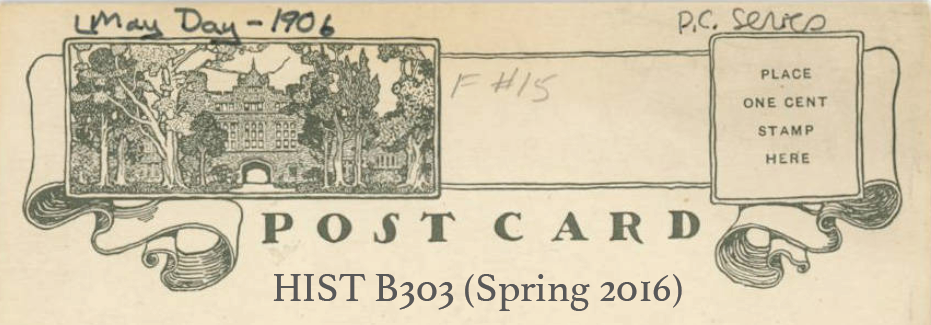After briefly attempting to stalk Rodney G.S. Carter on Google, I failed to find a picture of the man who wrote a very interesting article about silence in the archives. By stalking him I was trying to find out a little more about his identity. I’m sure for a lot of reasons it may not be important, but I was curious as to why his analysis of silence seemed to end at, “While we must extend the invitation to work with and include all groups, we much recognize that there are groups who code to work outside the archive. It is essential that archivists not undermine the right of groups to keep their own silence” (pg 233). And while I understand this argument and see its value, I wish there was a call for people in marginalized groups to join the archives, so that when there are gaps there is no question whether or not the archivist will do a good job of telling their story. They can fill the gaps themselves.
I say this about SGA, and I say it about most anything else; we need to work inside and outside the system. It’s great that some marginalized groups are creating their own system for archiving their history. But what happens when people are only looking at mainstream archives? If there is a gap in Bryn Mawr’s archives, I don’t want to see us complacent with just another archival method. I want to see us hire someone who will do the job and do it well. I think that means we need to get more people in the system, but also call for accountability from those in the system. I don’t think just “not knowing” or feeling like they just don’t have the “experience” is good enough anymore. There must be people out there who are willing to teach and help and contribute.
I don’t know who Rodney G.S. Carter is. From what he wrote I can only assume he’s writing from a place of privilege. So instead of him just saying that we should respect silences when they’re wanted, I wish he was also holding his hand out to help those who still need to get their foot in the door.
